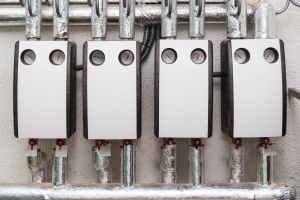Buying a home is exciting, but it can also feel overwhelming. Between mortgage applications, inspections, and moving boxes, there's a lot to think about. The good news? You don't have to navigate this journey alone. Understanding the key steps to protect your investment – from thorough inspections to ongoing coverage – can save you thousands of dollars and countless headaches down the road.
Why Home Inspections Matter More Than You Think
Picture this: you've found your dream home. The kitchen is perfect, the neighborhood feels right, and you can already imagine hosting friends in the backyard. But what's hiding behind those walls? Under that beautiful hardwood flooring? A professional home inspection is like getting an honest health check-up for your potential new home.
Home inspections aren't just a formality – they're your safety net. A qualified inspector will examine everything from the foundation to the roof, checking electrical systems, plumbing, heating and cooling equipment, and structural components. They're looking for issues that could cost you big money later, like a failing water heater or electrical problems that could pose safety risks.
The best part about getting an inspection? Knowledge is power. When you know what you're dealing with, you can negotiate repairs with the seller, budget for upcoming maintenance, or even walk away if the problems are too extensive. It's much better to discover a leaky roof before you buy than after you're living there and water is dripping into your living room.
Modern inspection companies use advanced technology like thermal imaging to detect problems invisible to the naked eye. This high-tech approach can reveal moisture issues, energy inefficiencies, and electrical hot spots that traditional visual inspections might miss. The small investment in a thorough inspection often pays for itself many times over by preventing major surprises.
The Hidden Truth About Sewer Lines
Here's something most home buyers don't think about until it's too late: the sewer line. While you're admiring granite countertops and checking out the master bedroom, there's an entire system underneath your potential home that could spell disaster if it's not working properly.
Sewer scope inspections involve running a specialized camera through your home's sewer line to check for blockages, breaks, or tree root intrusion. This might not sound glamorous, but trust us – it's incredibly important. Sewer line repairs can cost thousands of dollars, and they're often not covered by standard home insurance policies.
Older homes are particularly susceptible to sewer line problems. If the house was built decades ago, there's a good chance the sewer lines are made of materials that break down over time. Tree roots are notorious for finding their way into sewer lines, causing expensive blockages and damage. In some areas, settling ground or construction work can crack or offset sewer pipes.
The good news is that a sewer scope inspection is relatively quick and affordable compared to emergency sewer repairs. The camera inspection will show you exactly what's happening in those underground pipes, so you'll know if you're looking at a minor issue or a major problem that needs immediate attention.
Don't let the underground nature of sewer lines fool you into thinking they're not important. A failing sewer system can cause sewage backups in your home, create health hazards, and lead to expensive emergency repairs. Getting a sewer scope as part of your home buying process is simply smart protection for your investment.
Home Warranties: Your Safety Net After the Sale
So you've bought your home, passed the inspection, and settled in. Everything looks great – until your dishwasher stops working three months later. Or your air conditioning unit decides to quit during the hottest week of summer. This is where home warranties become your best friend.
A home warranty is different from homeowner's insurance. While insurance covers damage from unexpected events like fires or storms, a home warranty covers the repair or replacement of major home systems and appliances when they break down due to normal wear and tear. Think of it as an extended warranty for your house.
Most home warranties cover essential systems like heating and cooling, electrical, plumbing, and major appliances like refrigerators, washers, dryers, and dishwashers. When something breaks, you simply call the warranty company, pay a small service fee, and they arrange for a qualified technician to fix or replace the item.
The peace of mind that comes with a home warranty is invaluable, especially for first-time homeowners who might not have a network of trusted repair professionals. Instead of scrambling to find a reliable contractor when your water heater fails, you have a simple phone number to call. The warranty company handles the logistics, and you know the repair will be done by a vetted professional.
Home warranties are particularly valuable for older homes or homes with aging appliances and systems. Even if everything looks good during your inspection, normal wear and tear can cause systems to fail unexpectedly. A home warranty acts as a financial buffer against these inevitable breakdowns.
Some inspection companies offer exclusive home warranty programs as an added benefit for their clients. These programs often provide better coverage and faster service than generic warranties because they're backed by companies that understand homes and have established relationships with quality repair professionals.
Putting It All Together: A Smart Approach to Home Protection
The key to protecting your home investment is taking a comprehensive approach. Start with a thorough professional inspection that includes all major systems and specialized services like sewer scoping. Use the inspection results to make informed decisions about your purchase and to plan for future maintenance needs.
Once you're in your home, maintain that protection with a quality home warranty program. This ongoing coverage ensures that when systems and appliances inevitably need repair or replacement, you're prepared financially and logistically.
Remember, your home is likely your largest investment. Taking steps to understand its condition and protect against future problems isn't just smart – it's essential. The small costs of inspections and warranties pale in comparison to the potential costs of major system failures or undiscovered problems.
Working with experienced professionals who understand homes and the local market makes all the difference. Look for inspection companies that use modern technology, provide detailed reports, and offer ongoing support after your inspection. The right partner will help you navigate the entire process with confidence.
For comprehensive home inspection services that include advanced technology and ongoing support, visit Titan Inspection Services.
Your home should be your sanctuary, not a source of stress about hidden problems or unexpected repair bills. With the right inspection, proper understanding of your home's systems, and ongoing warranty protection, you can truly relax and enjoy your investment for years to come.
Frequently Asked Questions
How long does a typical home inspection take?
Most home inspections take 2-4 hours depending on the size and age of the property. Larger homes or those with unique features like pools or detached structures will naturally take longer. A good inspector will be thorough but efficient, and you should receive your detailed report the same day.
Should I get a sewer scope even if the home inspection doesn't show any problems?
Absolutely! Sewer lines are underground and can't be properly evaluated during a standard visual inspection. A sewer scope uses specialized camera equipment to see inside the pipes and identify issues like blockages, cracks, or root intrusion that aren't visible from above ground. This is especially important for older homes or properties with large trees near the sewer line.
What's the difference between a home warranty and homeowner's insurance?
Homeowner's insurance covers damage from unexpected events like fires, storms, or break-ins. A home warranty covers the repair or replacement of home systems and appliances when they break down from normal wear and tear. You need both types of protection – insurance for disasters and warranty for everyday breakdowns.
Can I be present during my home inspection?
Yes, and it's actually recommended! Being present during your inspection is like getting a personalized tour of your home's systems. You can ask questions, learn about maintenance needs, and understand exactly what the inspector finds. It's an educational opportunity that helps you become a more informed homeowner.
How do I know if I need a home warranty?
Home warranties are particularly valuable if you're buying an older home, a home with aging appliances, or if you're a first-time homeowner without an established network of repair professionals. Even newer homes can benefit from warranty coverage since appliances and systems can fail unexpectedly. Consider your comfort level with potential repair costs and your access to reliable contractors when making this decision.






